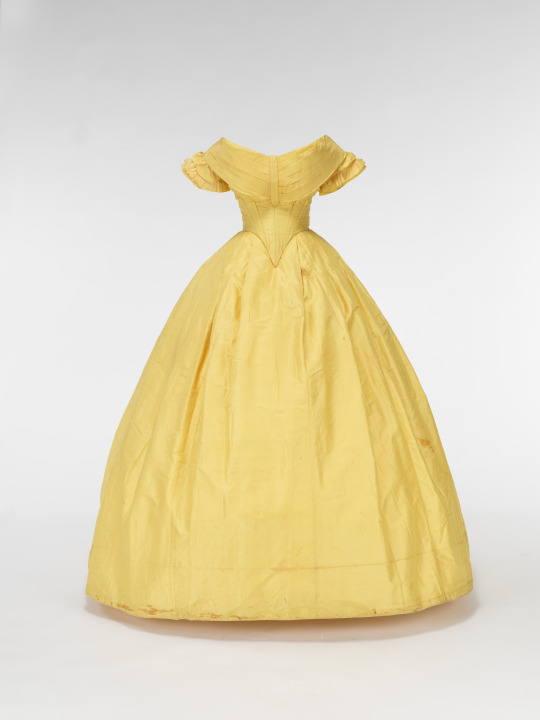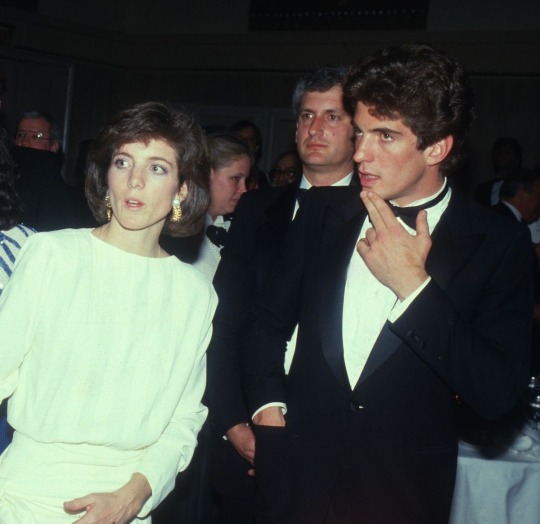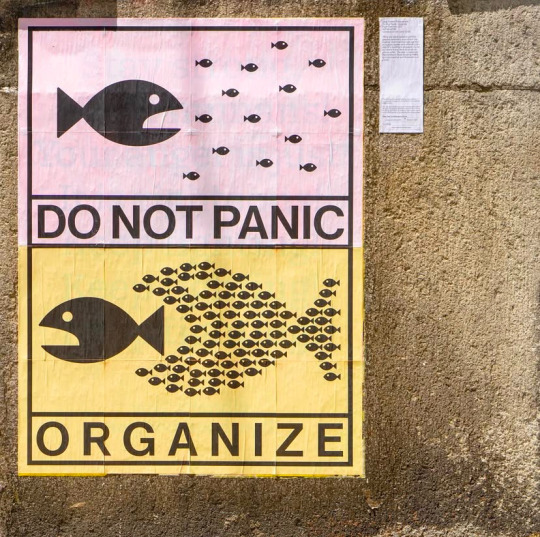a social commentary blog about pop culture, design, and history
Don't wanna be here? Send us removal request.
Text
Febb Burn and the 19th amendment
There had been a tie — 48 to 48 — in the Tennessee legislature. Suffragists anxiously waited for the result that would guarantee them the right to vote. Tennessee, known as the “Perfect 36th,” was the last state needed to ratify the 19th amendment. That summer day in 1920, the all male senate was divided. The majority adorned colored roses on their lapels: yellow for support and red for…
#1920s#19th amendment#biography#constitution#equal rights#featured#febb burn#government#history#ratify#retro#senate#suffrage#tennessee#vintage#womens history month
0 notes
Text
the decline in quality of mainstream clothes and its impact
There used to be a time where a dress you bought would last long enough to pass down to your grandchildren. Nowadays, finding such a dress is a difficult task. Clothes, thanks to the popularity of fast fashion, disintegrate within months or years. How does the increased consumption of cheap and poorly made clothes negatively impact lower income communities? Throughout history and up until the…
#appearance#companies#decline#demand#design#discrimination#economy#evolution#fashion#fast fashion#featured#fit#industrial revolution#lifestyle#low income#lower income#mainstream#market#outfits#quality#retro#sewing#stitching#style#trends#vintage
0 notes
Text
slayyyy

A photo of Jackie at Jack’s senate desk, 1959
25 notes
·
View notes
Text
the allure of flight attendants
Daily writing promptWhen you were five, what did you want to be when you grew up? View all responses Growing up, I always wanted to become a flight attendant. Everytime I took a flight, I couldn’t help but admire them. They were always so graceful and put together. They knew where to go and what to do, and were so kind. However, as you grow up, you realize the relatity of many jobs, flight…
#1950s#airlines#dailyprompt#dailyprompt-1891#design#fashion#featured#flight attendants#flying#glamour#history#lifestyle#outfits#retro#style#travel#vintage
0 notes
Text
ballet-inspired fashion
Ballerinas are often portrayed in the media as prim and proper. While the sport itself requires this attitude, I think that the clothes that they wear also contribute to this impression people have of them. Think of the tight buns, neutral colors, and form fitting silhouettes: they all call to someone who is put together. As a result, the style has been popular in mainstream culture ever since…
#1950s#alternative#althetics#audrey hepburn#ballerina#ballet#beatniks#chanel#design#diane von furstenberg#dior#diversity#fashion#featured#feminity#femmine#flats#flattering#goth#grace kelly#graceful#history#lifestyle#mainstream culture#media#neutral#outfits#point shoes#posh#prim
0 notes
Text

Dress, mid-19th century
From the Metropolitan Museum of Art
630 notes
·
View notes
Text
let's talk about the elephant in the room
Daily writing promptWhich animal would you compare yourself to and why?View all responses I’ve loved elephants ever since I was a little girl. For some reason, I’ve always been drawn to them. Maybe it was because they looked cuddly. Their size never intimidated me even when I heard stories of them killing poachers and other animals with ease. Elephants are a symbol of strength but grace. They…
#africa#anger#animals#civilization#composure#dailyprompt#dailyprompt-1874#elephants#grace#humanity#humanty#intelligence#strength
1 note
·
View note
Text
redesigning modern products in vintage styles
Vintage designs invoke a sense of nostalgia in all of us. Through their colors, iconography, and realism, they even convince us to approach the past with rose colored glasses. I thought it would be fun to recreate some modern products in vintage styles, specifically inspired by the 1950s and 1960s. Here are the ones I’ve chosen: Starburst One of my favorite candies, Starburst has been around…
#1950s#1960s#1970s#business#candy#cerave#colorful#dermatologists#design#doctors#featured#flowers#glass#graphic design#hawaii#history#lifestyle#minimalist#modern#moisturizer#organes#poppi#retro#skincare#sparkling water#starburst#style#vintage
0 notes
Text
Contribute to my oral history project
Hi! I'm look for people who were born in the 20th century to contribute to my oral history project blog. All you have to do is share a story that relates to a major event. This can be the 2008 recession, JFK Jr's plane crash, the Spice Girls, hippie culture, etc. All directions will be in this the google form:https://docs.google.com/forms/d/e/1FAIpQLSfji9OUwkgUj0MeREuI_Egghz4ofNnAPhI4eVa4hnljbZjCCg/viewform?usp=sharing . Thank you if you choose to help!
#20th century#1900s#2000s#90s#80s#70s#50s#60s#30s#vintage#retro#history#pop culture#politics#economy#millenials#gen z#gen x#boomers
0 notes
Text

they really were jack & jackie’s doubles 😭❤️ it’s the cutest thing!
28 notes
·
View notes
Text
abbreviations, abbreviations, and more abbreviations
Daily writing promptIf you could permanently ban a word from general usage, which one would it be? Why?View all responses In the past couple of years, more and more people have started to use the abbreviation “DEI.” It stands for diversity, equity, and inclusion, and while it is innocent, it has been weaponized by some groups of people. They use it to describe any person of color who doesn’t…
#abbreviations#dailyprompt#dailyprompt-1859#dei#democrats#design#diverse#diversity#employment#equity#featured#history#inclusion#language#lifestyle#racism#republicans
0 notes
Text
why does beautification matter?
What do you see outside your window when you wake up? Do you see trees, an open field, your backyard, a city street? No one goes through life with the same experiences. Among society, it’s common to assign wealthier areas as more successful. With this success comes more trees, bigger parks, and cleaner roads. The way we see our environment has a direct correlation to how we…
#asians#beautification#beauty#blacks#color#community#design#diversity#fdr#featured#greenspaces#hispanics#history#joy#lifestyle#lobby#local government#neighborhoods#new deal act#parks#people of color#plants#redlining#relationships#retro#vintage#welcome
0 notes
Text
the fashion of the civil rights movement
In honor of Black History Month, let’s review the tremendous impact of black leaders, innovators, and community members through the civil rights movement. The civil rights movement utilized a variety of methods to convey their message with a united and buttressed front. Using the psychological biases of human nature and the new forms of media popularized in the 1950s and 1960s, they dispelled…
#1950s#1960s#africa#afros#america#black#black fashion#black history month#brown v. board#church#civil rights movement#community#design#discrimination#ella baker#fashion#featured#februrary#ghetto#hbcu#jeans#leather#lifestyle#march on washington#martin luther king jr.#ministers#mlk#mlk jr#outfits#respectability politics
1 note
·
View note
Text
the most important invention of my lifetime? GPS!
Daily writing promptThe most important invention in your lifetime is…View all responses It’s a little unconventional but I would argue Google Maps. Sometimes, I watch shows created in pre-iPhone times and am dumbfounded on how they traveled long distances without an easy-to-understand map. Maybe it’s because I was never taught to learn how to read a physical map, but it seems so annoying to have…
#70s#80s#90s#cars#dailyprompt#dailyprompt-1840#driving#featured#google#google maps#GPS#maps#nagvigation#paper map#retro#tech#transportation#update#vintage
0 notes


